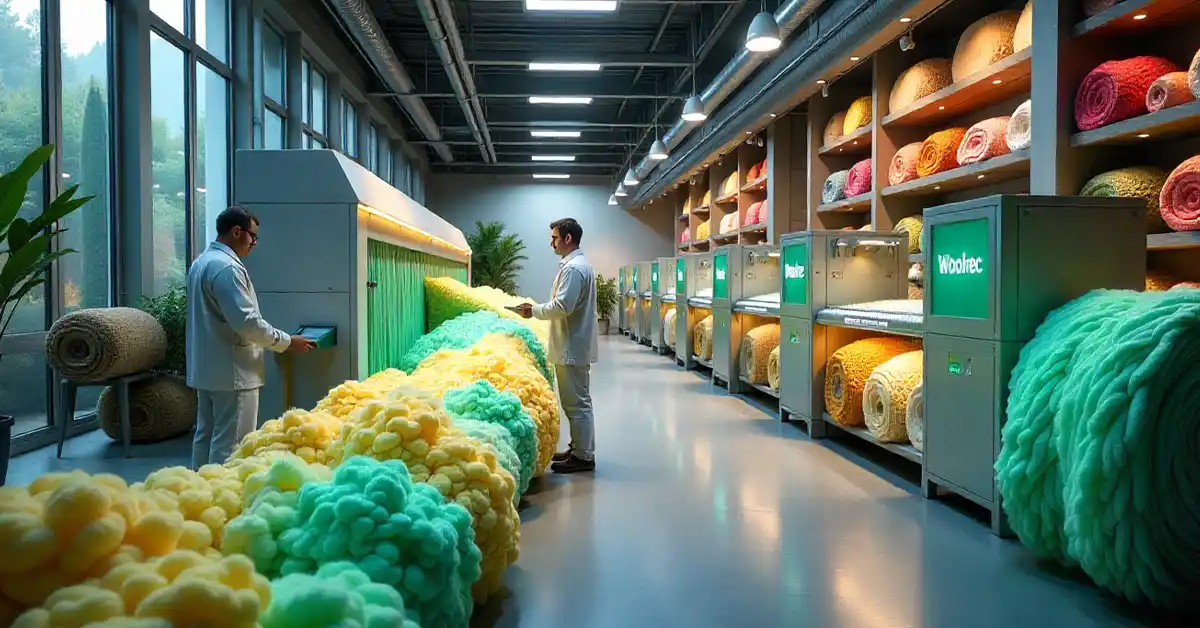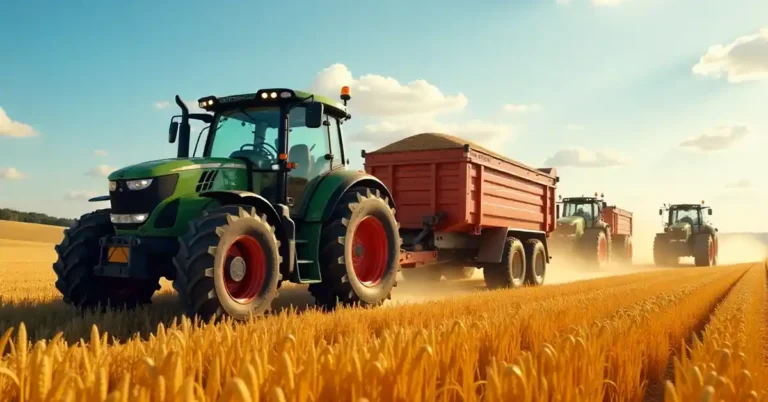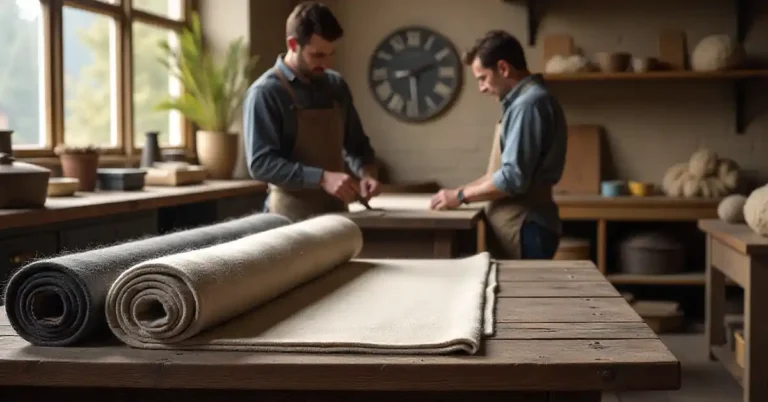Every year, millions of tons of textile waste end up in landfills, contributing to environmental degradation on a massive scale. Among these, wool-a natural, biodegradable fiber-often gets overlooked in recycling efforts due to the complexities involved in processing it. Enter Woolrec, a company that’s changing the game by pioneering innovative methods to recycle wool textiles sustainably and efficiently.
Why Wool Recycling Matters
Wool is a remarkable fiber. It’s renewable, biodegradable, and has excellent insulating properties. Yet, despite these benefits, wool garments and textiles frequently face a short life span. Fast fashion trends and the wear-and-tear of daily use mean wool products are discarded prematurely. When wool ends up in landfills, it decomposes slowly and can release methane, a potent greenhouse gas.
Recycling wool not only reduces waste but also lessens the demand for virgin wool production, which is resource-intensive. Sheep farming requires significant land, water, and feed, and it contributes to greenhouse gas emissions. By reusing wool fibers, Woolrec helps close the loop, turning old garments into new products without the environmental cost of starting from scratch.
Moreover, the process of recycling wool can lead to innovative new products that extend the life cycle of this versatile material. From insulation in construction to felted products and even new fashion items, recycled wool can be transformed into a myriad of useful applications. This not only fosters creativity in design but also encourages a circular economy where resources are utilized to their fullest potential. As consumers become more aware of the environmental impact of their choices, the demand for sustainable practices like wool recycling is on the rise, prompting brands to adopt more eco-friendly approaches.
Additionally, wool recycling supports local economies by creating jobs in the textile recycling sector. As more companies invest in sustainable practices, they contribute to a growing industry that prioritizes environmental stewardship and community well-being. This shift not only helps to mitigate the environmental impact of textile waste but also empowers individuals and communities to engage in sustainable practices, fostering a culture of responsibility and awareness around consumption and waste management. By choosing recycled wool products, consumers can play a vital role in this transformative movement, making a positive impact on both the planet and their local economies.
Woolrec’s Innovative Approach to Textile Recycling
Advanced Sorting and Collection Systems
One of the biggest challenges in textile recycling is sorting. Wool fibers are often blended with synthetic materials or other natural fibers, complicating the recycling process. Woolrec has developed a sophisticated sorting technology that accurately identifies and separates pure wool from mixed fabrics. This precision ensures that the recycled wool maintains its quality and integrity. By utilizing advanced imaging and AI-driven algorithms, Woolrec can process large volumes of textile waste efficiently, significantly reducing the time and labor traditionally associated with sorting. This not only enhances the overall efficiency of the recycling process but also minimizes the environmental impact of textile waste.
The company partners with retailers, manufacturers, and local communities to establish collection points, making it easy for consumers to contribute their unwanted wool items. This network not only increases the volume of wool available for recycling but also raises awareness about sustainable textile practices. Educational campaigns accompany these initiatives, informing the public about the benefits of recycling wool and encouraging responsible consumption. By fostering a culture of sustainability, Woolrec aims to inspire a shift in consumer behavior, promoting the idea that every wool garment has the potential for a second life.
Mechanical Recycling with a Twist
Traditional mechanical recycling methods can degrade wool fibers, shortening their length and weakening their strength. Woolrec’s proprietary process addresses this by combining gentle mechanical techniques with enzymatic treatments that preserve fiber quality. This hybrid method allows for the production of recycled wool yarns that rival virgin wool in durability and softness. The enzymatic treatments specifically target the natural structure of wool, breaking down contaminants without damaging the fibers themselves. This innovative approach not only enhances the quality of the recycled material but also opens up new avenues for product development, allowing designers to explore creative uses for recycled wool.
The result? High-quality recycled wool that can be used in a variety of products—from cozy sweaters to insulation materials—without compromising performance or feel. Additionally, Woolrec is committed to transparency in its production processes, providing consumers with detailed information about the origins of their recycled wool products. This commitment to traceability not only builds trust with customers but also emphasizes the importance of ethical sourcing and environmental responsibility in the textile industry. As the demand for sustainable materials continues to rise, Woolrec is at the forefront of a movement that champions innovation while prioritizing the planet’s health.
Impact Beyond Recycling: Woolrec’s Role in Circular Fashion
Collaborations with Designers and Brands
Woolrec doesn’t just recycle wool; it actively promotes circularity in fashion by collaborating with designers and brands committed to sustainability. These partnerships focus on creating collections made entirely from recycled wool, proving that eco-friendly fashion can be stylish and functional.

By showcasing recycled wool’s potential, Woolrec helps shift consumer perceptions. People begin to see recycled textiles not as inferior or second-rate but as premium, environmentally responsible choices. This transformation in perception is crucial, as it encourages consumers to prioritize sustainability in their purchasing decisions, ultimately driving demand for eco-friendly materials in the fashion industry.
Furthermore, these collaborations often lead to innovative design solutions that push the boundaries of traditional fashion. Designers are inspired to experiment with textures, colors, and styles that highlight the unique characteristics of recycled wool, resulting in collections that are not only sustainable but also trendsetting. This synergy between Woolrec and the fashion industry exemplifies how creativity and sustainability can coexist, paving the way for a new era of responsible fashion.
Educational Initiatives and Community Engagement
Changing industry practices requires more than technology—it demands cultural shifts. Woolrec invests heavily in education, hosting workshops and seminars that teach consumers and industry professionals about the benefits of wool recycling. They also run campaigns highlighting the environmental impact of textile waste and the importance of responsible consumption.
These efforts foster a community of informed consumers who make conscious choices, supporting the broader movement toward sustainable fashion. In addition to workshops, Woolrec collaborates with schools and universities to integrate sustainability into their curriculums, ensuring that the next generation of designers and consumers understands the significance of circular fashion. By engaging with young minds, Woolrec not only spreads awareness but also inspires future leaders in the industry to prioritize sustainability as a core value in their work.
Moreover, Woolrec’s community engagement extends to local artisans and craftspeople, encouraging them to incorporate recycled wool into their creations. This not only supports local economies but also promotes a sense of pride and ownership in sustainable practices. As these artisans showcase their work at local markets and exhibitions, they help to further normalize the use of recycled materials in everyday fashion, creating a ripple effect that amplifies the message of sustainability across communities.
Challenges and Future Prospects
Despite its successes, Woolrec faces ongoing challenges. Scaling up operations to handle the global volume of wool waste requires significant investment and infrastructure development. Additionally, the variability in wool quality and contamination levels can affect recycling efficiency. These challenges are compounded by the need for greater public awareness and participation in sustainable practices, as many consumers remain unaware of the benefits of wool recycling and the environmental impact of textile waste.
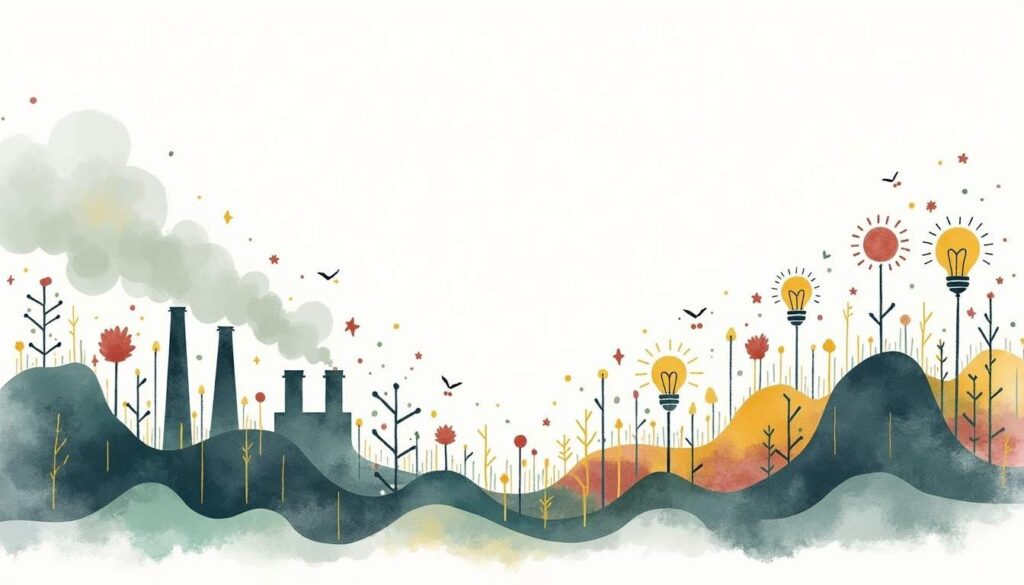
However, Woolrec is actively researching solutions, including advanced fiber separation technologies and collaborations with agricultural sectors to improve wool quality at the source. Their vision extends beyond recycling to encompass a fully integrated wool lifecycle—from farm to fashion to recycling and back again. This holistic approach not only aims to reduce waste but also to create a circular economy where every stage of wool production and consumption is optimized for sustainability. By partnering with fashion designers and brands, Woolrec is working to promote the use of recycled wool in new collections, thus encouraging a shift in consumer behavior towards more eco-friendly choices.
Furthermore, Woolrec is exploring innovative educational programs aimed at farmers and textile manufacturers to promote best practices in wool production and waste management. These initiatives are designed to foster a deeper understanding of the environmental implications of wool waste and to inspire action within the industry. By engaging stakeholders at every level, from sheep farmers to end consumers, Woolrec hopes to build a robust network that champions sustainability and drives significant change in the wool industry.
Why Woolrec’s Work Matters to Everyone
Textile waste isn’t just a problem for manufacturers or environmentalists-it affects communities worldwide through pollution, resource depletion, and climate change. Woolrec’s approach offers a blueprint for how industries can rethink waste as a resource rather than a burden.
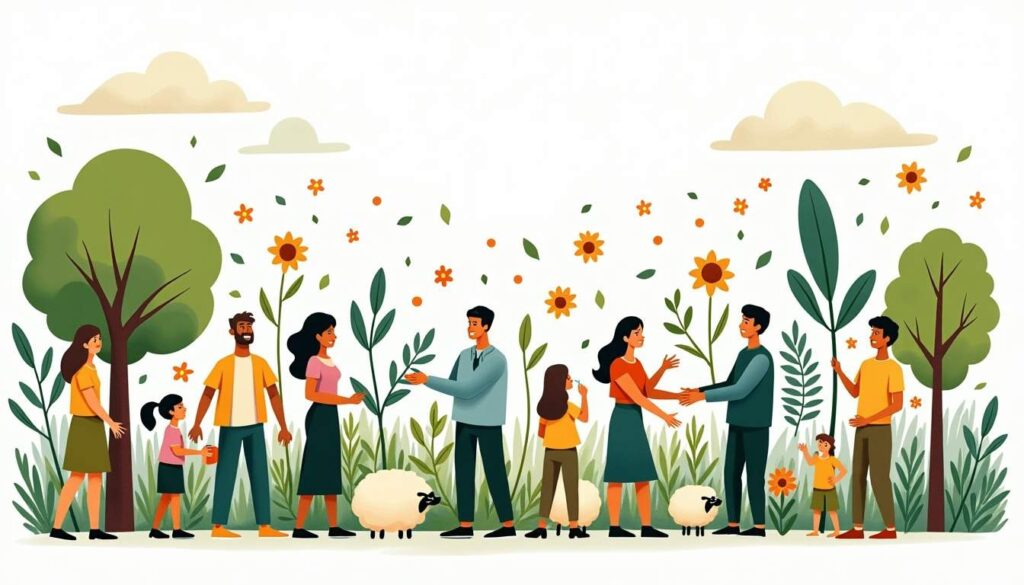
By supporting companies like Woolrec, consumers play a vital role in driving demand for sustainable products and encouraging innovation. Every recycled wool sweater or blanket represents a step toward a cleaner planet and a more responsible fashion industry.
In a world where sustainability is no longer optional, Woolrec stands out as a leader demonstrating that recycling wool is not only possible but profitable and impactful. Their work is a reminder that with the right technology and commitment, we can transform waste into opportunity and build a more sustainable future.

